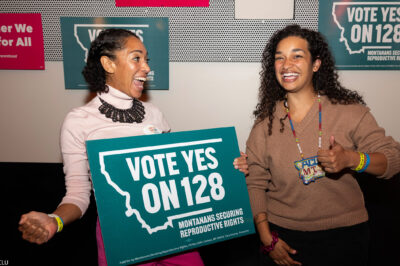Couples who work together to make healthy decisions about contraception should be supported. So why is it that local Walgreens in Texas have repeatedly refused to sell contraception to men, despite corporate headquarters policy and federal guidelines to the contrary?
That is exactly what happened to Adam Drake, who tried to purchase emergency contraception from a Walgreens in Houston. He was shocked when the pharmacy unequivocally denied him the product because he is a man. When he complained to the store manager, she stood by the pharmacist’s decision.
What happened to Mr. Drake is very troubling: no one should face gender discrimination at the pharmacy. But the incident is even more troubling given that we had already asked Walgreens earlier this year to ensure that its stores sell emergency contraception to men after we learned that men in Texas and Mississippi were prohibited from buying the product. Back in June, we received an encouraging response from Walgreens headquarters saying that it distributed a bulletin to all its stores telling them that emergency contraception can be sold to men, and that a male customer who asks to purchase emergency contraception need not be “accompanied by a female, and does not need to identify the individual for whom he is purchasing the product.” Apparently, the Walgreens that Mr. Drake went to did not get that message.
So it is time for Walgreens to do more. This week, we asked Walgreens to train its pharmacists and store managers, and send secret shoppers to its stores (PDF) to ensure that corporate policy is followed. We’ve also asked ACLU of Texas members to sign a petition to tell their local Walgreens that they must sell emergency contraception to men.
Luckily, Mr. Drake was able to purchase emergency contraception from a competitor — a pharmacy that doesn’t discriminate based on gender, and a pharmacy that knows that the Federal Drug Administration (FDA) has approved emergency contraception for sale behind the pharmacy counter for men and women ages seventeen and older. Time is of the essence when accessing emergency contraception. Experts stress that emergency contraception is most effective the sooner a woman takes it, and its effectiveness decreases every 12 hours. It is therefore crucial that a customer can get access to emergency contraception as soon as it is needed.
Our hope is that couples will not face gender discrimination at the pharmacy, and will not face unnecessary obstacles in accessing emergency contraception. Let’s hope that Walgreens steps up and turns our hopes into a reality.





